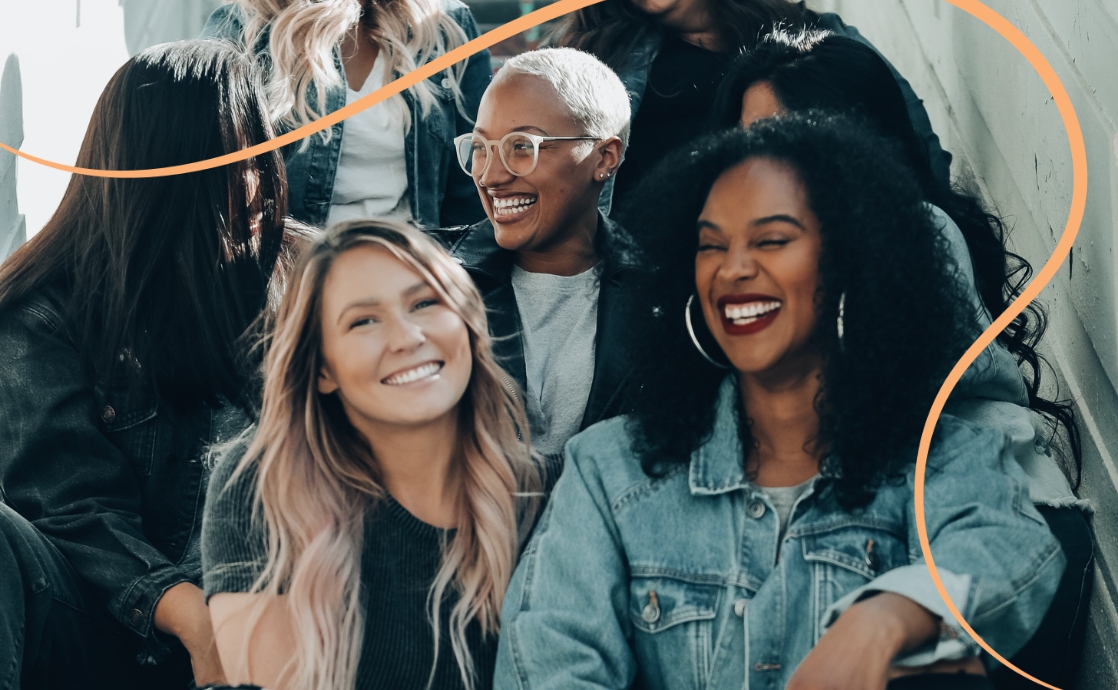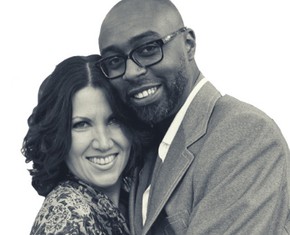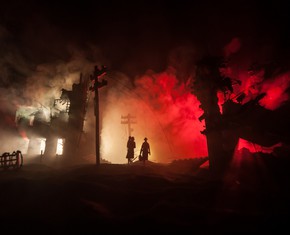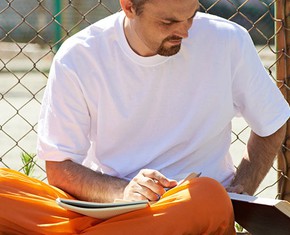The views expressed in our content reflect individual perspectives and do not represent the authoritative views of the Baha'i Faith.
From a scholarly standpoint, words such as “racism” and “racist” have far more complex meanings than the stereotype of a bad, evil person, an overt extremist, a white nationalist, or a Ku Klux Klan member.
We can pretty easily, by definition, call a member of the KKK a racist. But we sometimes have a hard time understanding, in reality, that each of us lives on a spectrum of the social construct of race stemming from a very long, complex system invented right here in the United States.
Normal, everyday white folks are no exception, even when we have a conscious belief in equality, oneness, and racial justice. I include myself in that category.
Abdu’l-Baha, one of the central figures of the Baha’i Faith, wrote: “Intense is the hatred, in America, between black and white, but my hope is that the power of the Kingdom will bind these two in friendship, and serve them as a healing balm.”
RELATED: How Community Activism Opened a White Nationalist’s Eyes
Speaking from a “white” perspective, I can easily see how the words “racism” and “racist” elicit emotive reactions and images. White folks have been conditioned to react emotionally to those words. If you’re white, ask yourself: did you happen to react to the word white? If so, that’s fairly normal — but if we want to move towards a more just and equitable society, these words need to exist without eliciting an emotional reaction. This can most easily happen by diving into their meaning.
While these words represent a complexity that continues to grow deeper by the day, at their foundation, racism and racists represent behaviors, both subconsciously and consciously, that affect every one of us. White people, in particular, fall on a spectrum of racist behavior depending on how one has been conditioned by the social construct of race.
So when it comes to people who have varying opinions about race that may even be subconscious, learned from their environment, or even exist on the extreme end of the spectrum, as a Baha’i, I must always remember their true reality as an inherently noble spiritual being. Sometimes this is much easier said than done, and takes a lot of spiritual practice and forbearance — especially with learned racial behaviors that oppress others.
I try to get past these behaviors in a reasonable way to the understanding of our human oneness. But, in order not to go to war with them — which is another learned behavior for solving problems from society — I have to remember there is probably a lot more going on beneath the surface. That’s why I work to manifest the character Abdu’l-Baha asked of us:
Act in accordance with the counsels of the Lord: that is, rise up in such wise, and with such qualities, as to endow the body of this world with a living soul, and to bring this young child, humanity, to the stage of adulthood. So far as ye are able, ignite a candle of love in every meeting, and with tenderness rejoice and cheer ye every heart. Care for the stranger as for one of your own; show to alien souls the same loving kindness ye bestow upon your faithful friends. Should any come to blows with you, seek to be friends with him; should any stab you to the heart, be ye a healing salve unto his sores; should any taunt and mock at you, meet him with love. Should any heap his blame upon you, praise ye him; should he offer you a deadly poison, give him the choicest honey in exchange; and should he threaten your life, grant him a remedy that will heal him evermore. Should he be pain itself, be ye his medicine; should he be thorns, be ye his roses and sweet herbs. Perchance such ways and words from you will make this darksome world turn bright at last; will make this dusty earth turn heavenly, this devilish prison place become a royal palace of the Lord – so that war and strife will pass and be no more, and love and trust will pitch their tents on the summits of the world.
I know, it’s not nice to call people racist but, please remember, I’m coming from a place that understands these words beyond the image of the KKK member. I’m not saying all white people are KKK members — what I am working to convey is that racism is on a spectrum. On one end, there is the extreme white nationalist, while the other end often holds a conscious belief that “I’m not racist” or “all races are equal,” etc.
RELATED: Why Saying ‘I’m Not Racist’ Isn’t Enough
This means that there is a well-crafted and intentional system of superiority and inferiority based on skin color that we all live in. That system, continuously and without abatement, affects Black people, Indigenous people, and people of color negatively to one degree or another — either directly or indirectly.
Although I believe in the unity of humankind and its essential oneness, I also know that as a white person, I have been systematically infused with the ideologies, customs, and beliefs of a European, Westernized standard. This standard places me at the center as superior and ranks virtually everyone else as inferior. I don’t believe this personally, and as a Baha’i, I work to fight against it, but I know as a white person that racism is the proverbial water I swim in. I must be actively conscious of this to avoid behaving in ways that oppress people of color.
I realize, and hope everyone else does, too, that eradicating racism begins with understanding racism as a spectrum — from the ones who believe in equality but live in a segregated white neighborhood, to the tiki torch, AK-47-carrying chanter of “We will not be replaced,” and everything in between.
From my perspective, the work of eradicating racism begins when we start with this understanding.
It isn’t about externalizing this issue and pointing to everyone else, but it is about coming to terms with my own racism and racist behaviors, mostly subconscious at this point, and owning them. In the course of this process, I must suspend judgment towards all people — understanding why we have racism and why people may be where they are, no matter how extreme.
RELATED: 19 Questions White People Can Ask to Spark Discourse about Race
I also know from experience it is really never helpful for me to argue or fight where race is involved, especially because I know to divide and conquer is the modus operandi of systemic racism. I understand the factual history that a racist system was created in the 17th century in the United States by elites who purposefully used skin color to divide and conquer poor Black and white people and to cease their coming together in unity to demand human rights. I understand the beginning of the “white” race was intentionally designed to divide poor whites from poor Blacks by promising incentives based on white skin and, if the white folks got those benefits and sided with the white elite of the day, human rights were lost for all.
This divide-and-conquer strategy worked then and still does to this day. This strategy is one I personally believe Baha’u’llah, the prophet and founder of the Baha’i Faith has come not only to reverse but to eradicate.
The Guardian of the Baha’i Faith, Shoghi Effendi, said that racial unity is “the most vital and challenging issue” in the Baha’i community and beyond. The Baha’i teachings also say that prejudice involving race is due to imitation and lack of critical investigation — imitation of societal norms, ideologies, a political standpoint, and even the opinions of family and friends. In turn, independent, critical thought and investigation is required around race for us to ever move past it as a barrier to unity.
RELATED: Avoiding the Trap of Thinking I’m Right
As a white woman, I have the privilege of being able to have these frank conversations with other white people, to figure out what we need to do to end racism. I always remind myself that every person I encounter has a complex, lived experience which contains all they hold as true and dear, no matter their skin color. A great deal of things inform their perspective, including joy, love, pain, trauma, heartache, anger, and frustration etc. For me, because I am working to live up to the standards of love and unity set by Baha’u’llah — which means I am always a work in progress — I must work even harder to understand where every person I meet is coming from no matter what. In this regard, the Universal House of Justice, the democratically-elected global governing body of the Baha’i Faith, guided Baha’is in a recent letter to:
… guard against being drawn into the ultimately futile conflict and strife that characterizes so much of the discussion of the affairs of society, or – heaven forbid – allowing interaction of this type to permeate, even fleetingly, the conversations of the community. Yet such vigilance on your part in avoiding discord and in not becoming entangled in society’s controversies should under no circumstances be construed as aloofness from the many pressing concerns of this time. Far from it. You are among the most active and earnest of humanity’s well-wishers. But, whether through deeds or words, the merit of your every contribution to social well-being lies, first, in your resolute commitment to discover that precious point of unity where contrasting perspectives overlap and around which contending peoples can coalesce.
In the interests of establishing justice, I have to remember that love and discovering precious points of unity are the best mechanisms to break through the divisiveness that continues to build and surround us, especially around race. It is also important to emphasize this approach is made with justice in mind, not at its expense. My individual actions in working to create unity, understanding, and consultation are directly connected to our society’s institutions tasked with ensuring justice for all.
The main point of this idea is that to move away from instantly judging a person with little discernment or effort to go deeper with them, I must work to practice higher levels of consciousness and find out what is really going on with them. Could it be upbringing? Is there fear? Do they simply believe what friends and family have said? Do they really believe what they are saying to be true? It is up to me to spend a little more time and expend effort and patience to care for them and listen to what might really be going on beneath the surface.
I try to act in accordance with Baha’u’llah’s instruction:
The children of men are all brothers, and the prerequisites of brotherhood are manifold. Among them is that one should wish for one’s brother that which one wisheth for oneself. Therefore, it behoveth him who is the recipient of an inward or outward gift or who partaketh of the bread of heaven to inform and invite his friends with the utmost love and kindness. If they respond favourably, his object is attained; otherwise he should leave them to themselves without contending with them or uttering a word that would cause the least sadness. This is the undoubted truth, and aught else is unworthy and unbecoming.
If I am going to be a Baha’i, not just in name but in action, I must care for every person and love them with no strings attached. I must continuously be concerned about their well-being, just as I am with my children, husband, and best friends.
















Comments
Sign in or create an account
Continue with Googleor